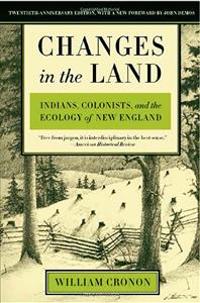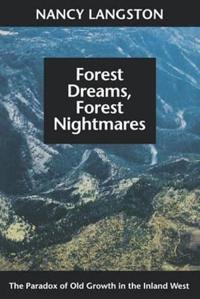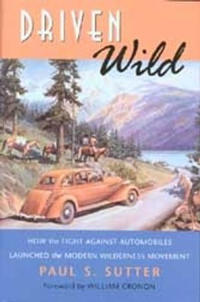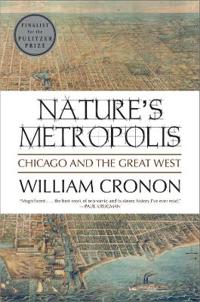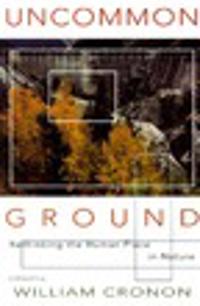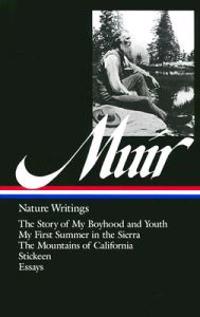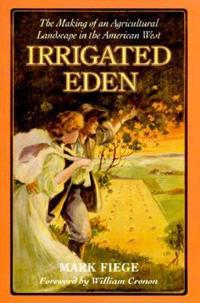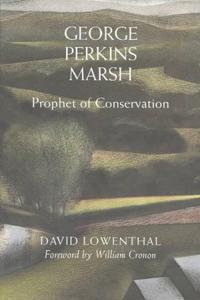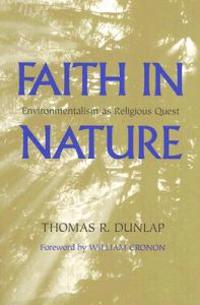Changes in the Land: Indians, Colonists, and the Ecology of New England (Häftad)
avWilliam Cronon, John Demos, William Cronon
ISBN: 9780809016341 - UTGIVEN: 2003-09The book that launched environmental history now updated.
Winner of the Francis Parkman Prize
In this landmark work of environmental history, William Cronon offers an original and profound explanation of the effects European colonists' sense of property and their pursuit of capitalism had up[...]Forest Dreams, Forest Nightmares (Pocket)
avNancy Langston, William Cronon, Nancy Langston
ISBN: 9780295975504 - UTGIVEN: 1996-08The Blue Mountains have become the Blade Runner scenario for the public lands, synechdoche for what might have, and has, gone horribly wrong. This is a book that argues powerfully for the complexity of nature, and demonstrates the need for equally complex explanations. A book of fundamental importan[...]
Driven Wild (Häftad)
avPaul Sutter, William Cronon
ISBN: 9780295982205 - UTGIVEN: 200411In its infancy, the movement to protect wilderness areas in the United States was motivated less by perceived threats from industrial and agricultural activities than by concern over the impacts of automobile owners seeking recreational opportunities in wild areas. Countless commercial and governmen[...]
Nature's Metropolis (Häftad)
avWilliam Cronon
ISBN: 9780393308730 - UTGIVEN: 199208In this groundbreaking work, William Cronon gives us an environmental perspective on the history of nineteenth-century America. By exploring the ecological and economic changes that made Chicago America's most dynamic city and the Great West its hinterland, Mr. Cronon opens a new window onto our nat[...]
Uncommon Ground (Pocket)
avWilliam Cronon
ISBN: 9780393315110 - UTGIVEN: 199610Nature or people? The aim of legislating humans out of the wilderness is no solution to our environmental problems, argues this book - a timely reassessment of the environmentalist agenda by outstanding historians, scientists, and critics.[...]
Nature Writings (Inbunden)
avJohn Muir, William Cronon, John Muir
ISBN: 9781883011246 - UTGIVEN: 199704Irrigated Eden (Pocket)
avMark Fiege, William (FRW) Cronon, Mark Fiege
ISBN: 9780295980133 - UTGIVEN: 2000-08Irrigation came to the arid West in a wave of optimism about the power of water to make the desert bloom. Mark Fiege's fascinating and innovative study of irrigation in southern Idaho's Snake River valley describes a complex interplay of human and natural systems. Using vast quantities of labor, irr[...]
George Perkins Marsh (Pocket)
avDavid Lowenthal, William (FRW) Cronon, David Lowenthal
ISBN: 9780295983158 - UTGIVEN: 2003-02George Perkins Marsh (1801-1882) was the first to reveal the menace of environmental misuse, to explain its causes, and to prescribe reforms. David Lowenthal here offers fresh insights, from new sources, into Marsh's career and shows his relevance today, in a book which has its roots in but wholly s[...]
Faith in Nature (Pocket)
avThomas R. Dunlap, William (FRW) Cronon, Thomas R. Dunlap
ISBN: 9780295985565 - UTGIVEN: 2005-09The human impulse to religion - the drive to explain the world, humans, and humans' place in the universe - can be seen to encompass environmentalism as an offshoot of the secular, material faith in human reason and power that dominates modern society. "Faith in Nature" traces the history of environ[...]
Pumpkin (Pocket)
avCindy Ott, William (FRW) Cronon, Cindy Ott
ISBN: 9780295993324 - UTGIVEN: 2013-07While many cultures eat pumpkin year round, North Americans reserve it for a set of beloved autumn rituals that celebrate the harvest season and the rural past. In a fascinating cultural and natural history, Pumpkin shows how Americans have used the pumpkin to connect with nature and our agrarian ro[...]

